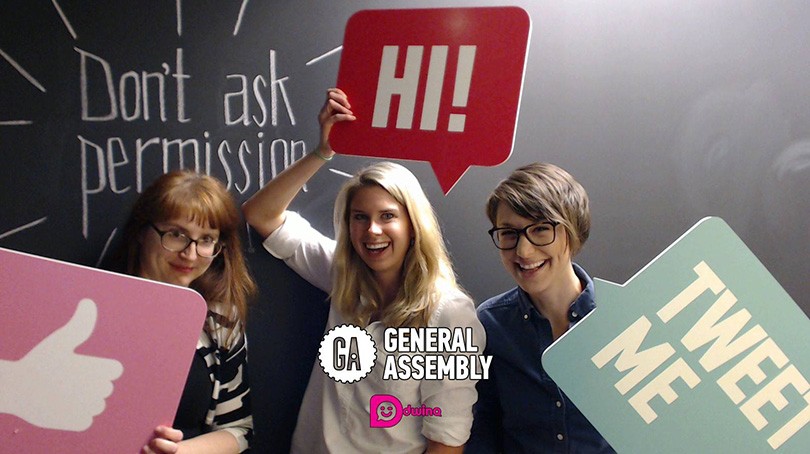How to Effectively Recruit and Retain Millennials: Advice from General Assembly
Recruiters and hiring managers: get ready. The Bureau of Labor Statistics says that by 2015, millennials will become the workforce’s new majority, and by 2030, this group will represent 75 percent of the workforce.
Even though millennials are becoming a prevalent part of the labor force, companies are having trouble bringing them on board and keeping them happy for the long-haul. According to a recent survey from Elance-oDesk and Millennial Branding, more than 50% of surveyed Gen X hiring managers said that they’re struggling to find and retain millennial talent.
On the extreme opposite end of the spectrum is an education startup called General Assembly — a company that is unique because more than 80% of its employees are millennials. At General Assembly, 20-somethings are managing massive P&Ls, running large-scale operations and taking on responsibilities that at other companies, would be reserved for leaders 10-years their senior.
Here are 3 lessons that General Assembly can teach us about building a millennial-friendly recruiting process and culture:
Lesson 1: Millennials value open and honest dialogue
Jill Maguire, General Assembly’s Chief People Person explains that millennials thrive on consistent feedback, constant challenge, and the opportunity to grow in their careers — but these attitudes are often misinterpreted as naivete and “entitlement.”
“I've been in many forums where CEOs and managers from other companies discuss today's workforce and I am always horrified because millennials are much maligned as entitled or wanting a free ride,” says Maguire.
“My response is that if a millennial is telling you they've been there six months and want to know what's next, they aren't demanding a new role, they are honestly just asking how they can get better and how they can grow."
How recruiters can make millennials happier: From the very first conversation, ask millennial candidates about their career aspirations and goals. In addition to focusing on their aspirations, find out what they don’t like do. Be attentive to, engage with, and respond to their career goals.
These ‘millennial-friendly’ attitudes have been responsible for General Assembly’s aggressive year-over-year growth. Team members are empowered as leaders, for the unique strengths — as opposed to the stereotypes — that they bring to the table.
Lesson 2: Empower millennials
General Assembly’s CEO Jake Schwartz explains that millennial employees are often still discovering their talents and passions. It is important to embrace this learning curve and to give new team members the opportunity to discover their strengths within the organization.
General Assembly does this by implementing education programs and allowing team members to transition into new roles internally, encouraging them to try on new responsibilities.
“We have to be committed to learning with and teaching our team,” says Maguire.
How recruiters can make millennials happier: Listen between the lines. In addition to evaluating millennials for specific roles, pay equal attention to culture fit within your organization as a whole. The job that millennials are doing today may be completely different from the one that they will want to do tomorrow. By empowering — and expecting — millennials to try new responsibilities, you’ll encourage them to stick around longer.
Lesson 3: Give millennials time to grow
The environment at General Assembly is fast-paced and relatively unstructured — there’s a lot to learn very quickly, and often people need time to adjust before they thrive.
“What I tell all employees on day one is that there are two types of people — people who try to ‘impress’ on day one and people who stay heads down, aiming to learn and make an impact later on,” says Schwartz.
“I tell people to focus on impressing people during their 12th week on the job — not the first. These team members will enjoy learning about and soaking up the culture to make an impact over the longer term.”
How recruiters can make millennials happier: Help millennial candidates feel confident by telling them that the pressure isn’t on. Make it known from the very beginning that your company cares about their learning and that you’re excited to have them on board for the long-term. Make it clear to millennial candidates that they will be given the space and resources to grow.
Final Thoughts
Millennial-friendly cultures don’t happen by accident or by coincidence. It’s important to invest in the planning and design of your work environment — and as gatekeepers for an organization, recruiters need to play an active role.
“Taking a chance on a millennial candidate can often be the best decision a company makes,” says Schwartz.
This means creating the right structure — to help millennials learn and challenge themselves. The process won’t always be perfect, but ultimately, you’re learning together.
* image by General Assembly
Topics: University recruiting Hiring millennials Employee retention
Related articles




